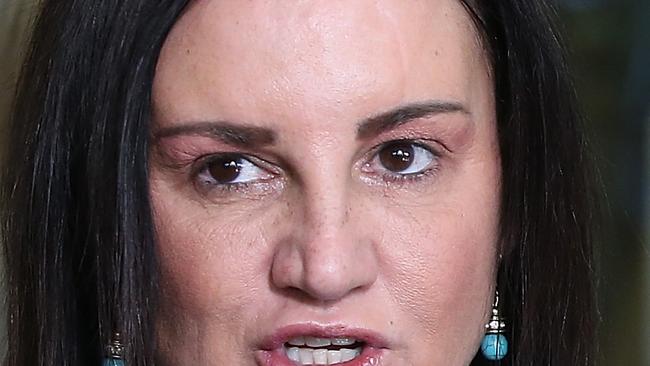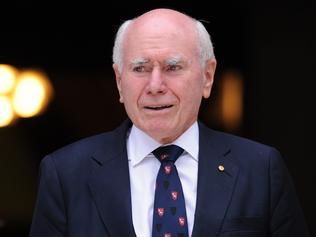Budget 2017: bureaucracy boom sparks NDIS blowout
The cost of the NDIS bureaucracy will hit $2bn a year in the middle of the next decade.

The cost of the National Disability Insurance Scheme bureaucracy will hit $2 billion a year in the middle of the next decade, as the overall program draws level with the funding needed to sustain Medicare, chewing through more money than the levy can raise.
Fresh from announcing the bold tax hike to lock in funding for the $22bn NDIS, Scott Morrison told the National Press Club yesterday that solving the money puzzle was personal.
He opened his address by telling the story of his wife Jenny’s brother Gary Warren, who has multiple sclerosis and relies on help from the NDIS.
“We can end the political debates that are occurring about its funding and then we can work together on delivering it across the country, and explaining to Australians what they’re paying for,” the Treasurer said.
“Australians still have concerns about the NDIS, don’t get me wrong. They don’t trust too many governments with these things ever and they want to make sure that their money is well spent, and people with disabilities get support. People with disabilities have serious questions about how this will work. I want to spend our government’s time solving those problems.”
Opposition spokeswoman on disability reform, Jenny Macklin — who oversaw the introduction of the NDIS as minister in the outgoing Gillard government — has refused to let the issue go, however, maintaining that her party “fully funded” the scheme.
“To pay for the NDIS, Labor increased the Medicare Levy by 0.5 per cent, and also introduced a number of savings measures including introducing a means test on the private health insurance rebate,” she said.
“The numbers underpinning these savings were developed and published by the Treasury — led at that time by Martin Parkinson, now the secretary of the Prime Minister’s own department.”
Ms Macklin said she trusted the National Disability Insurance Agency when it said $22bn “remains the best estimate of the longer-term cost of the NDIS”.
The battle to control those costs has already begun in earnest, within and outside the agency.
The Australian understands the agency’s new board, chaired by businesswoman Helen Nugent, has been combing over cost pressures in detail after the majority of the former board was discharged.
Publicly, the NDIS agency, led by chief executive David Bowen, has conceded there are “cost pressures” on a number of fronts.
There are far more children being found eligible for the scheme than forecast, with numbers expanding beyond predictions in all cohorts younger than 18.
There are more people, across all age groups, approaching the scheme for access than forecast and fewer people leaving it.
The agency modelled “benchmark package” costs — a general guide for the types and value of support people with different functional needs might attract — but, in reality, the actual dollar value being committed to people in their packages is much higher.
There are legislative concerns, too. In the NDIS Act, eligibility criteria include access for people who have “substantially reduced functional capacity to undertake the activities of learning or social interaction” and, in the early intervention field, “developmental delay”.
The Productivity Commission, which designed the NDIS, never proposed the former category and, in the latter, had recommended global developmental delay, a different condition. The real challenges await in the way the governance of the NDIS is structured, however.
Social Services Minister Christian Porter is concerned about decision-making which must be agreed by the federal government and all states, even though the federal government is on the hook for the entirety of any cost overruns.
“As minister, my concern is that further work is needed to ensure the governance arrangements provide the flexibility for governments and the NDIA board to respond quickly to challenges as they arise,” the minister said.
Catherine Mehr’s son Max Roche was diagnosed with autism in September, and she has had to fight for the full $30,000 in support.
Max, 3, was eligible for the NDIS early intervention system, which funds therapy support in the crucial younger years in the hope of making big changes in a person’s capacity to speak, walk and function.
The NDIS agency did allow Max to start his therapy at the AEIOU Foundation while the dispute was being resolved and he has already improved remarkably.
“We first started his therapy part-time while we waited for the NDIS approval — my parents were paying for that out of their retirement fund,” Ms Mehr said. “AEIOU have been a godsend.”




To join the conversation, please log in. Don't have an account? Register
Join the conversation, you are commenting as Logout